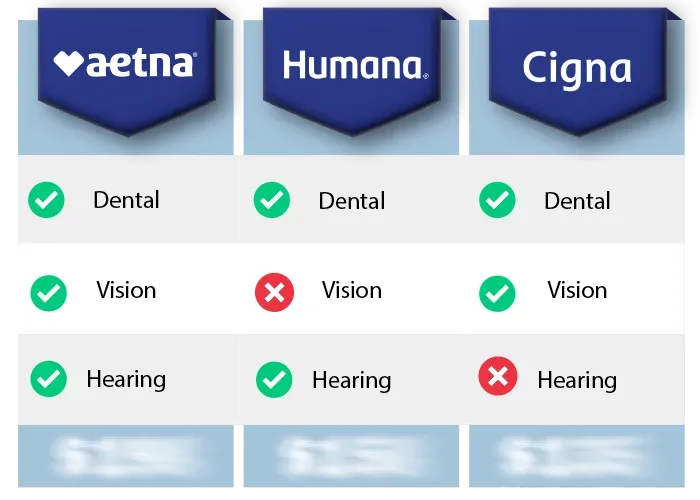
Supplemental Health Care for Medicare: Navigating Additional Coverage Options
Supplemental Health Care for Medicare: Navigating Additional Coverage Options
Navigating the complex world of health care can be daunting for Medicare recipients. Supplemental health care for Medicare, commonly known as Medigap, offers a solution to cover costs that Original Medicare does not, such as copayments, coinsurance, and deductibles. This article delves into the intricacies of supplemental health care, providing a thorough understanding of the options available to enhance Medicare coverage.
Understanding the Basics of Supplemental Health Care
Medicare provides crucial health insurance coverage for individuals over 65 or with certain disabilities. However, it does not cover all medical expenses. Supplemental health care policies, or Medigap plans, are designed to fill these gaps. Offered by private insurance companies, these plans are standardized across most states, with each plan labeled with a different letter that corresponds to a certain level of coverage.
The Alphabet Soup of Medigap Plans
There are ten standardized Medigap plans available in most states, labeled A through N. Each plan offers a different combination of benefits, with Plan A providing the most basic coverage and Plan F offering the most comprehensive coverage. For example, Plan C offers coverage for Part B deductibles, foreign travel emergencies, and skilled nursing facility care coinsurance, while Plan G does not cover the Part B deductible.
Eligibility and Enrollment
To be eligible for a Medigap policy, one must be enrolled in Medicare Parts A and B. The best time to purchase a policy is during the Medigap Open Enrollment Period, which starts on the first day of the month that one is both 65 or older and enrolled in Medicare Part B. During this period, you have a guaranteed issue right to buy any Medigap policy sold in your state, regardless of health status.
Comparing Costs and Benefits
Costs for Medigap policies can vary widely depending on the plan, the area you live in, and the insurance company. It's important to compare not only the premiums but also the benefits and the insurer's rating and reputation. Some plans may offer additional benefits like vision or dental coverage, which can be a deciding factor for many.
The Role of Medigap in Prescription Drug Coverage
It's crucial to note that Medigap plans sold after January 1, 2006, are not allowed to include prescription drug coverage. For prescription drug coverage, one must enroll in a Medicare Prescription Drug Plan, also known as Part D.
The Impact of State Laws on Medigap
State laws can affect Medigap policies significantly. For instance, some states offer Medigap policies for people under 65 with Medicare, which is not a requirement in all states. Massachusetts, Minnesota, and Wisconsin standardize their Medigap plans differently from the rest of the country.
The Future of Medigap Plans
Recent changes in Medicare have led to the phasing out of certain Medigap plans for new enrollees. For example, Plans C and F are no longer available to people who were new to Medicare on or after January 1, 2020. These plans covered the Part B deductible, which Medicare is moving away from as part of an effort to encourage more prudent use of medical services.
Supplemental Health Care and Medicare Advantage
It's also important to distinguish between Medigap and Medicare Advantage Plans (Part C). While both can help reduce out-of-pocket costs, they work in very different ways. Medicare Advantage Plans are an alternative to Original Medicare, providing all Part A and Part B benefits and often including additional benefits like prescription drug coverage, dental, and vision. In contrast, Medigap supplements the coverage provided by Original Medicare.
Conclusion
Supplemental health care for Medicare provides a safety net for those seeking to minimize out-of-pocket health care costs. With a variety of plans available, it's essential to conduct thorough research or consult with a health insurance expert to choose the plan that best fits individual health needs and financial situations. As Medicare evolves, staying informed about the latest changes and options can help ensure that seniors have the comprehensive coverage they need.
This article aimed to provide an extensive exploration of supplemental health care options for Medicare beneficiaries, discussing the different types of Medigap plans, eligibility, enrollment, and the impact of state laws. It also highlighted the differences between Medigap and Medicare Advantage Plans and addressed recent changes in Medicare that affect supplemental health care coverage.

Copyright © 2025 Senior Benefits Guide All Rights Reserved.
204 Church St Suite 1A, Boonton NJ 07005
Disclaimer: This website is not affiliated with the Medicare/Medicaid program or any other government entity. The information provided on this website is for informational purposes only. It is not intended to be, nor does it constitute any kind of financial advice. Please seek advice from a qualified professional prior to making any financial decisions based on the information provided. This website acts as an independent digital media & advertising publisher. This webpage is formatted as an advertorial. An advertorial is an advertisement that is written in an editorial news format. PLEASE BE AWARE THAT THIS IS AN ADVERTISEMENT AND NOT AN ACTUAL NEWS ARTICLE, BLOG, OR CONSUMER PROTECTION UPDATE. This website MAY RECEIVE PAID COMPENSATION FOR CLICKS OR SALES PRODUCED FROM THE CONTENT FOUND ON THIS WEBPAGE. This compensation may affect which companies are displayed, the placement of advertisements, and their order of appearance. Any information, discounts, or price quotations listed may not be applicable in your location or if certain requirements are not met. Additionally, our advertisers may have additional qualification requirements.
Our goal is to provide exceptional service. One of our agents may reach out to you to discuss your order, ask for feedback, and/or see if you need any assistance with your products, services, or plans, at the phone number you provided regardless of your do-not-call list status. You may opt-out of further contact at any time by simply telling our customer service team that you would no longer like to be contacted. In the event that our team is unable to reach you by phone, they may send you a text message letting you know that we called. Both our text messages and phone calls may be sent or connected utilizing automated software. Carrier charges may apply. You may opt-out of any future contact via text message by replying anytime with "STOP".
Copyright © 2025 All Rights Reserved.
Find Medicare Advantage Plans in 3 Easy Steps

